Check out some books by your tutor Fiona Veitch Smith … (click on the book covers to find out more)
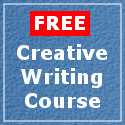 Hello everyone, welcome to the first session of our free online creative writing course. Over the next eight sessions we will be looking at different aspects of creative writing and trying our hand at various forms. I’d strongly encourage you to have a go at the exercises along the way, and please feel free to leave comments or ask questions at the end. If you have arrived on this page without first reading the home page and frequently asked questions page (on tab above) please go back and do so now. If you have read them, enjoy the course!
Hello everyone, welcome to the first session of our free online creative writing course. Over the next eight sessions we will be looking at different aspects of creative writing and trying our hand at various forms. I’d strongly encourage you to have a go at the exercises along the way, and please feel free to leave comments or ask questions at the end. If you have arrived on this page without first reading the home page and frequently asked questions page (on tab above) please go back and do so now. If you have read them, enjoy the course!
Creativity and Art
What is creativity? The Collins dictionary defines it as ‘the ability to cause something to exist’. Without getting into too much of an existential discussion, I would say that with every thought that is expressed, something has been created. It was Descartes who said: ‘I think, therefore I am’; well I would add, ‘I think, therefore I create’ (do you feel a God complex coming on?). But how do we express our thoughts? Sometimes we do it verbally, other times by body language and still again through what is loosely termed ‘art’.
Art takes place when a thought is expressed and fixed in a way that other people may experience it on an aesthetic level – through music, writing, painting, sculpture, choreography and so on. Many artists say that their best work takes place when they ‘by-pass’ the thought and simply express the feeling. This may be true, but for writers, who use a verbal medium, a feeling must first be converted into a thought before it can be put into words. Don’t over analyse the thought before you express it, as this way you can ‘channel’ the purest interpretation of the feeling, but some cognitive process needs to take place. Some writers prefer to mull over a thought and give it form before they put pen to paper – I’m one of them – but it’s good practice to try and switch off the ‘editor’ at least for the first draft. First response trigger exercises are useful in this regard and can release some unexpected words and images.
Exercise 1:
Write down your first response to these words or phrases:
- Blue ball
- And that’s when the sadness came
- Coffee
The first task of a good writer is to convert feelings into thoughts and then into words. This is the raw material that can then be converted into something more permanent. Some writers refuse to toy with their first drafts, believing their creativity will be diluted; I disagree. Allowing your critical mind to improve a piece of writing is where the craftsman meets the artist. Something produced only by the former will lack soul and something by the latter will lack form. Good writing is a combination of art and craft.
For public consumption
Art, of course, is highly subjective and one woman’s masterpiece is another woman’s unmade bed. We all have the ability to create, but whether or not our creation is ‘art’ must be left to the eye or ear of the beholder.
In this session we will look at how you can craft those creative thoughts into creative writing to share with other people. And that’s what sets ‘public’ writing apart from ‘private’ scribblings – there’s a perceived readership in mind. When I ramble on in my journal, I am the only one who will read it (hopefully!) so my only concern is getting my thoughts down on paper. The moment I want someone else to read it I begin to consider ways to improve the presentation and craft it into something more aesthetically pleasing. I consider which words may sound more colourful, whether or not my sentence structure is grammatically correct, whether I’m using evocative imagery, and so on.
Story, feeling or image?
What is it about those creative thoughts that you think might be of interest to other people? Do they speak of an eternal truth or a common experience? Do they make you laugh or cry? Do they suggest a story that will entertain or a poem that captures a moment that must be shared?
Exercise 2: In 50 words or less write down why you want to write then list three creative thoughts that you’ve had lately (each 10 words or less). These may be an image, a musing, a ‘truth’, a story, or so on. If you haven’t had any, take yourself for a walk and look around; what grabs your imagination? Browse through a newspaper or a magazine; do any stories or pictures catch your attention? Think back over your day; did anything funny, charming, shocking or unusual happen to you or someone you know?
Poetry or prose?
Some people are more suited to writing poetry than prose and some people do well at both. Although we won’t be discussing it in this course, other people are more suited to script. I’m one of them. I’ve had relative success as a prose writer and in fact have managed to earn a living from it, but it’s taken years of hard work to get to this point. I recently branched out into scriptwriting and found that I had much more of a natural ability. (If you’re interested in finding out more about scriptwriting, check out getting started in playwrighting). You may find that you’ve been trying to make it as a poet when actually you’re more suited to prose. Now I don’t want to pigeonhole anyone, but ask yourself the following questions:
- Are you more attracted to films than stills?
- Do you enjoy telling people ‘stories’ from your life?
- Do you prefer to read stories or poems?
If yes, to these, then you may be more suited to prose than poetry. If no, then the opposite may be true. If it’s ‘sometimes yes, sometimes no’ then perhaps you are suited to both. We shall be looking at how to write poems in more detail in session 7, but suffice to say, a poem is like a snapshot of a moment. If you can’t rest until you know what happened before and after, then prose may be your genre.
Exercise 3: Take one of the three creative thoughts you wrote down in Exercise 2, then list 20 separate words that communicate or describe that thought. Do not, at this stage, link the words into sentences. Once you have your 20 words use them in a poem of 16 lines or less. Then, take the same 20 words and work them into a short story of under 300 words. Which exercise came more easily? Which form has best communicated your creative thought?
Further Resources:
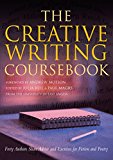
There are some excellent resources out there for creative writers. To get quick ‘starter’ images when your own well is dry I recommend The Writer’s Block by Jason Rekulak. I’m currently working through The Creative Writing Coursebook by Julia Bell and Paul Magrs and finding it very useful.
The next creative writing course session is how to write a short story. But before you move on to that, please feel free to leave a comment or ask a question in the box below.
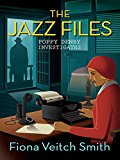
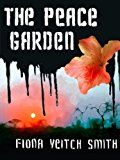
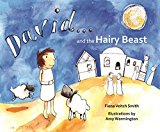
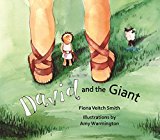
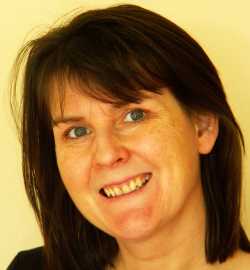 Welcome to The Crafty Writer's free online creative writing course, presented by Fiona Veitch Smith, a freelance journalist, editor, author, playwright, screenwriter and writing teacher. I hope that you'll see a dramatic improvement in the quality of your writing as you work through this course.
Welcome to The Crafty Writer's free online creative writing course, presented by Fiona Veitch Smith, a freelance journalist, editor, author, playwright, screenwriter and writing teacher. I hope that you'll see a dramatic improvement in the quality of your writing as you work through this course.
Hi i just wanted to ask about the book on creative writing. I would like to get it. Can i buy it from you or would it be free with this course? Thank You, Lisa Lewis
Hello Lisa, if you’re talking about the Linda Anderson book it is not part of this course simply one that I have read and recommended. So if you click through the link on the book cover you can buy it from Amazon or get it wherever you buy your books. You don’t have to buy it to do the course.
Just completed the first lesson in Creative Writing and found that my 20 words lend themselves to a poem much easier than I anticipated. It was not planned that way, but just came out in a sing-song verse. Looking forward to the next lesson,
Hi Tony, yes my poetry has a tendency to be sing songy at times too. Perhaps you should try your hand at writing song lyrics! Happy writing.
And the process of the phenomen of ‘STREAM OF CONSCIOUSNESS’ or is it, CONSCIENCENESS’ is also an important aspect of that creativity is it not, or is it sommething different,,
Hi James, stream of consciousness is a style of writing epitomised by the likes of James Joyce and other writers in the modernist movement. It is simply writing as if you are just writing out thoughts as they come to you. However, many literary theorists believe that this is an illusion of spontaneity as these novels and short stories are still edited and ‘crafted’ after they have been written. Perhaps what you are referring to is ‘spontaneous writing’ which is what we are doing in the first exercised (eg write down the first thought that comes to you …).
Hi Fiona
At last I have done something about starting to write. I have been promising myself for many years after friends and family have commented on my poetry and short stories I have dabbled with. These first exercises have been very thought provoking and I am really glad I joined today. Thank you
Debbie
You’re welcome, Debbie.
Would the book that is recommended in a library that I can just borrow instead of buy? Or would it just be an item that is only to be sold?
Hi Kristina, it’s in my local library. YOu should speak to your librarian and if they don’t have it for you they can order it.
Recently fell into a writer’s block sink hole. Your first three exercise got me going. Look forward to this course.
Jan
Glad to be of service
Hi Fiona,
I am attempting to write my first romance novel. I have a Liberal Arts Degree in English and History and I am excited to take this course and learn all I can.
Looking forward to it and you.
Maryanne
Hi Maryanne, you should check out my blog and do a search for ‘romance’. There may be something to help you there. Happy writing. Fiona
There was a writer at the local college here giving a course on writing the novel. I took the course which was six weeks…one day each week. She made the comment to never tell how old you are if you are over 30 because the publishers will not want to publish for you. I am 60. Am I too old to try to begin writing a non-fiction story. I appreciate all comments you would care to give on this.
Hi Jane, my friend Prue Philipson had her first novel published when she was 76. She had her first non-fiction book published when she was in her 60s. When I used to teach at an adult education centre the average age of my students was 55. Many of them went on to get work published. So no, you are not too old. What publishers may be concerned with is whether or not you are prepared to help market your book once it is published. There may be some concern that an older person will not be prepared or able to do that. As long as that is the case,. you should be fine.
I am very happy to find a free online creative writing course. I have been wanting to go back to school for a degree in writing for some time now, and financing my schooling has been a big issue preventing me from enrolling. So far I have found the class to be enlightening and very helpful. The exercises are great, and I feel that they are stimulating my creativity properly. Thank you for providing a free and easy way to better myself, my education, and my writing. I am hoping to be a published writer. Mostly I write fictional short stories and novels. In the past year, I have begun trying to sell my work to magazines. While I have not gotten my desired response, I hold onto belief that one day I will, and one day I will be a published (hopefully paid!) writer. Thanks again, and I hope to be visiting this website regularly.
That’s great to hear, Lakin. Keep on trying and keep on improving and one day you may very well be published. But until then, enjoy it!
Thank you for this website. I have been reading books for years (about a book a day) and something came over me a month ago that made me feel like writing. I have always wanted to write a book, but I just had this feeling to write. I have been writing for two hours a day. I write about my childhood, what happened that day, my school years, whatever comes to mind. I am starting to work on my vocabulary too. I am so elated with this website!
Glad to hear you’re making progress. How on earth do you manage to read a book a day?
I read whenever I get a chance. I read on the bus or train. I read whenever I am waiting. I read instead of watch t.v. I read in the morning, or while cooking. Most books I read are 200 – 300 pages long.
Amazing!
Wow. These excersises really made me feel like a true writer. Ecspecially the poem. Thanks, a lot
you’re welcome Tori.
I enjoyed the first lesson and the three exercises immensely. I love to write, and this course is perfect for practicing my craft. Thnaks so much for making it available, especially FREE.
You’re welcome, Tracey-Ann.
Thank you for making this course free. I am encouraged I can learn how to write correctly. I have the imagination, but not the skills to write properly. I so appreciate your willingness to share your thoughts and experience.
Joyce
Thank you for this starter exercise. I have been struggling to write more than journal entries for some time now. I look forward to more exercises within this course and learning to discipline to the skill of writing.
You’re welcome Pippa!
I like this course. I realay like to be a good writer. english is my second language but I like to study and don’t mind do it in a hard way.I am very excied to learn more and am open to any sugggestions. currently I am studing art therapy, so in some point I need to write good essays.
Hello Saedeh, this is probably the wrong course for you. It is not an English course but a creative writing course and will not help you write essays. Try this website for free English courses http://www.english-online.org.uk/
Good luck!
Thanks so much.
I have been looking for courses on creative writing and found this one by chance. I hope it will keep me focused. Fingers crossed .It is free but I will purchase materials as I progress. It also gives the opportunity to try out ideas at ones own pace.
I am looking forward to giving your class a shot. I have written poetry most of my life, however, I haven’t written much in my adult life. I usually write either poetry or factual things. When I was younger I wrote a few children’s stories. I have never been published, I have never had the guts to try… Thankyou for offering this free resource… I am now a grama, I hope I can finally do what I have always dreamed of doing.
It’s never too late to release your creativity, Tammy. Happy writing!
I’m very excited about this course and truely enjoyed the first lesson! i was pleased with both my poem and short story and now my thoughts are flowing. i’m ready for more! Thanks a lot!
you’re welcome Mandi!